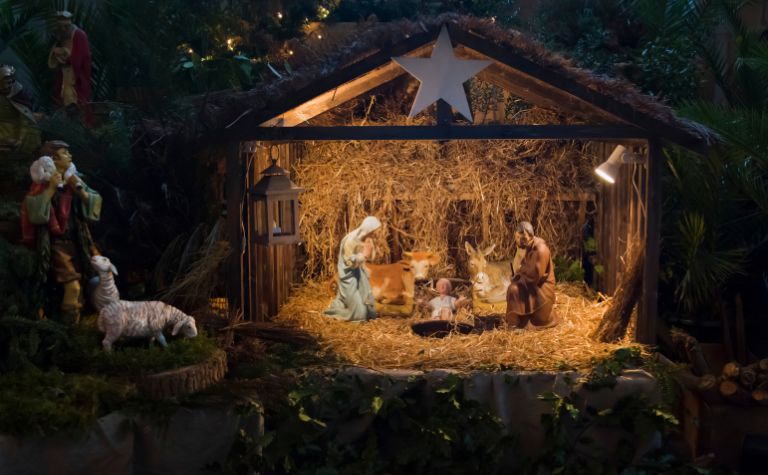The birth of Jesus Christ, a central figure in Christianity, has been traditionally celebrated on December 25th.
This date, deeply embedded in the festivities and ceremonies of many cultures, has been accepted by a vast number of people around the globe. However, historical ambiguities surrounding the exact date of His birth have led to various alternative theories.
One such theory suggests that Jesus might have been born on September 11th.
This idea, intriguing as it may sound, has both historical underpinnings and modern implications.

Biblical Clues and Interpretations
The Bible, being a primary source of knowledge about Jesus Christ’s life, offers a series of clues that some believe point towards a September birth.
While the exact date of Jesus’s birth is not explicitly mentioned in the scriptures, certain passages provide context that has led some to speculate about the timing.
One significant hint is the account of John the Baptist’s birth.
It’s widely accepted that John was about six months older than Jesus.
Using the description of when John’s father, Zechariah, was serving in the temple, some scholars have tried to determine the probable time frame of John’s conception and, subsequently, his birth.
By calculating six months forward from this estimated date, a timeframe in September emerges as a possibility for Jesus’s birth.
Moreover, the Bible mentions shepherds tending their flocks at night when they were informed of Jesus’s birth.
Some argue that this detail indicates a period other than winter, as shepherds typically brought their flocks in from the pastures during colder months.
A September timeframe would align with a period when shepherds might still be out in the fields.
Another consideration is the Feast of Trumpets, a significant event in the Jewish calendar.
Some see connections between the themes of this feast and the circumstances surrounding Jesus’s birth, suggesting that the two might be historically linked.
It’s crucial to note that these interpretations are speculative and based on connecting various pieces of information to form a plausible narrative.
While these clues provide an interesting basis for discussion, they are not definitive evidence of a September birthdate for Jesus.

Is the View Directly Connected to 9/11/2001 Somehow?
The events of September 11, 2001, have left an indelible mark on the collective consciousness of the world.
The significance of this date in recent history is undeniable, and its association with tragedy and loss is profound.
Given this context, the idea of linking Jesus’s birth to this date has raised eyebrows and sparked discussions.
There are those who argue that suggesting Jesus was born on September 11th is an attempt to bring a sense of redemption or divine purpose to a day marked by such sorrow.
By juxtaposing the birth of a central figure of hope and salvation with a modern-day catastrophe, it can offer a narrative of light emerging from darkness.
Others see this association as purely coincidental, emphasizing that the exploration into Jesus’s birth date predates the events of 2001.
For these individuals, the focus remains on historical and biblical interpretations rather than seeking parallels with contemporary events.
However, it’s worth noting that dates carry power in the human psyche.
They serve as markers of significant events, both personal and collective.
When two events of great magnitude are suggested to share a date, it is natural for connections, whether symbolic or speculative, to be drawn.
While the theory of Jesus’s birth on September 11th is based on various interpretations, it’s essential to approach the topic with sensitivity.
For many, September 11th is a day of remembrance and mourning, separate from ancient historical debates.
As with many discussions in this realm, it’s crucial to differentiate between personal beliefs, historical research, and the emotions attached to modern events.

Historical Records and the Julian Calendar
The task of pinpointing Jesus’s exact birthdate is complicated by the fact that the modern calendar system was not in use during His time.
Instead, the Julian calendar, introduced by Julius Caesar in 45 BC, was the predominant system, and it differs slightly from the Gregorian calendar we use today.
When analyzing historical records from this era, it’s important to account for these calendrical differences.
Over time, the Julian calendar began to drift from the solar year due to a discrepancy in the calculation of leap years.
This drift affects the alignment of historically recorded dates with their corresponding seasons.
Some scholars and enthusiasts, when considering records that hint at the timing of Jesus’s birth, take this calendar drift into account.
By adjusting dates from the Julian to the Gregorian system, a different perspective on the seasonal context of certain events emerges.
For instance, a date that might have been considered late winter in the Julian calendar could align more closely with early fall in the Gregorian system.
Furthermore, certain Roman records and writings from early Christian thinkers offer insights that some believe align with a September birth for Jesus.
For example, specific tax censuses and regional travel records provide context about the movements of populations during this era.
These movements, in turn, can offer indirect clues about the plausible timing of Jesus’s birth.
In conclusion, while the Julian calendar and various historical records provide fascinating insights into the world during Jesus’s time, they offer indirect evidence at best.
The exact date of Jesus’s birth remains a topic of speculation, but examining it through the lens of historical context enriches our understanding of that period.
Related Questions
Joseph, the husband of Mary and the earthly father of Jesus Christ, is depicted in the Gospels as humble, law-abiding, and obedient. In many Christmas scenes, such as in displays of the manger, he is...
The virgin Mary, the mother of Jesus, is one of the most fascinating people in the Bible. For 2,000 years, people of different eras and cultures have marveled at her faith in God. Mary's story in the...
